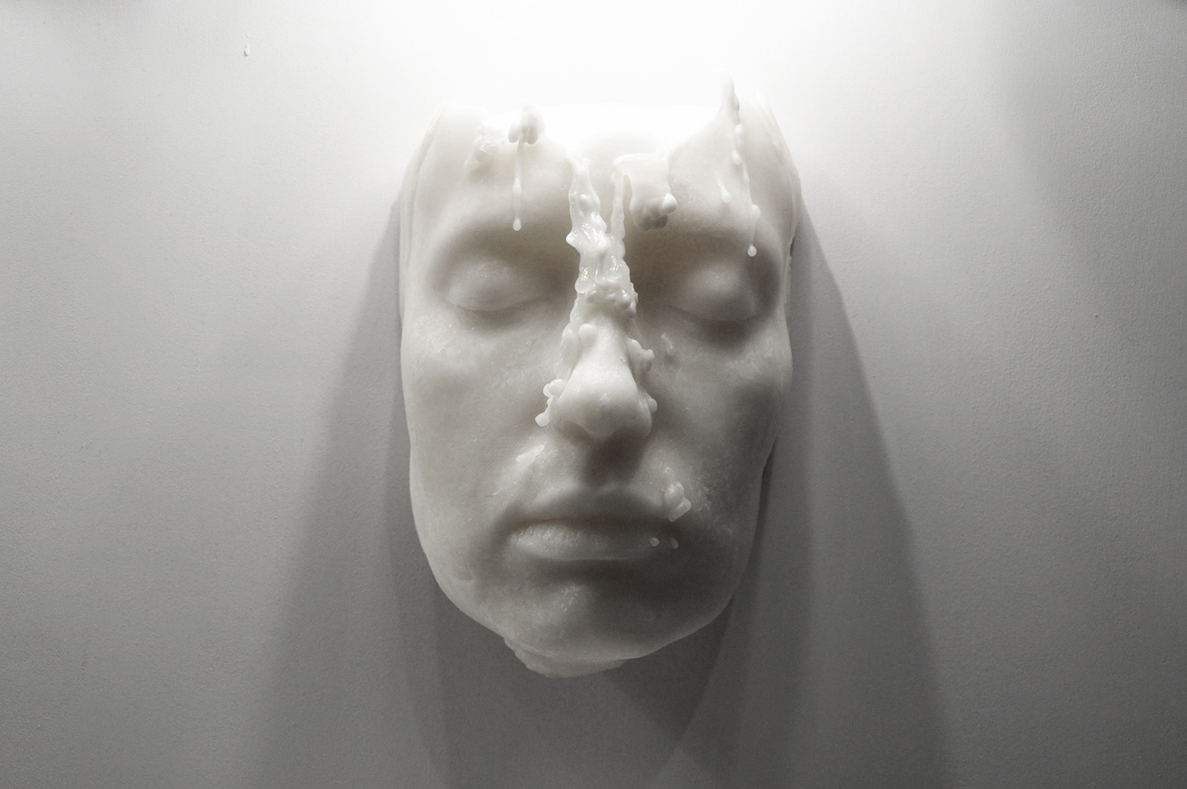
Faceless
Beeswax, wood, electrical components
Faceless reflects the immoral imbalance in power and the dehumanization of the innocent brought on by a world with nuclear arms.
Faceless
Faceless is an installation that reflects the immoral imbalance in power and the dehumanization of the innocent brought on by a world with nuclear arms.
Faceless was installed at the Tribeca Film Festival 2016 alongside "The Bomb" world premier. It was also installed at the RISD Industrial Design Triennial, "We Start from Making in October 2016, as well as the RISD Industrial Design Gallery show, "Nuclear Disarmament" in January 2016.

Using the tools and methods of industrial design, how might we reinvigorate public interest and increase engagement around reducing the nuclear threat?

Scoping the problem
Seems irrelevant
One of the public’s greatest barriers to engaging with the topic of nuclear arms is grounded in relevancy. They perceive it to be a problem of the past, an issue for others, and/or lacking a clear, physical community presence.
Lack of information
Nuclear weapons are devastating even undetonated. The nuclear fuel cycle and the nuclear production cycle represent hundreds of thousands of casualties around the world.
Need for emotional connection
Although the general public claims to receive the issue of nuclear security distant from their personal lives, they are not completely desensitized to it. It is easier for them to think about it on a more immediate level rather than a global scale.
We aimed to reinvigorate public interest by way of moral appeal.
N Square – with backing from Ploughshares Fund, Carnegie, Hewlett Foundation, MacArthur Foundation, and Skoll – challenged a group of RISD graduate students to participate in their mission of reinvigorating the conversation around nuclear disarmament.
Faceless is the result of Erica Efstratoudakis, Allison Davis, and Charlotte McCurdy taking up that challenge.
We did this by creating an installation piece that explored themes of identity, destruction, and complicity. After all, who has the right to erase the identity of another?

Abstract
After WWII, The Marshall Islands had been entrusted to the U.S. by the United Nations as a “trust territory” for its protection. Instead, the United States used the territory as a nuclear test site, and detonated the equivalent explosive power of 1.6 Hiroshima-sized blasts, every day, for twelve years between 1946 and 1958. The people from the test atolls, Bikini and Enewetak, and the fallout atolls, Ronelap and Utirik, are still affected. Entire communities were indefinitely displaced from their homes, and birth mutations caused by radiation are still a prominent problem today. The nuclear testing occurrence on the Marshall Islands is just one example of the uncontrollable destructive proclivity of nuclear weapons. Their possession creates an unfair imbalance in power that places greater value on one life over another.
Faceless reflects the immoral imbalance in power and the dehumanization of the innocent brought on by a world with nuclear arms. As a complicit force, the presence of the audience triggers the activation of the lights, accelerating the destruction of the human faces. We have the opportunity to restore balance and eliminate the immoral degradation of human lives.

This is not only a political or economic issue, but it is a humanitarian matter. It is a question of morality.


